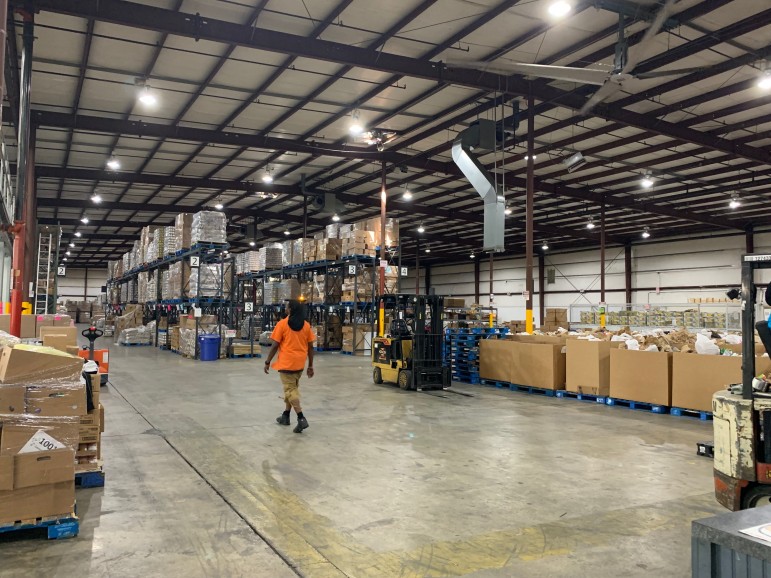by Levi Edwards
Alabama ranks poorly when it comes to food insecurity among seniors. In Jefferson County alone, more than 129,000 older adults struggle with hunger. A new grocery delivery program through the Community Food Bank of Central Alabama aims to improve seniors’ access to healthy food.
Under the program, eligible seniors will receive 30 pounds of dry goods, canned fruits and vegetables, and fresh cheese delivered to their homes each month. The program is aimed at seniors who can’t afford to buy groceries or who live in areas where it’s difficult to find healthy food. Jamie McLynn, director of partnerships at the food bank, says seniors often have to make tough decisions.
“We definitely know this is a documented challenge,” McLynn says. “Seniors in our region are having to make this difficult trade-off every month. Difficult choices between paying for rent, medication, filling up their car with gas or buying groceries. And a lot of those expenses, especially rent and utilities, they have to pay or they’ll get shut off or evicted, and so groceries are usually the first thing to go.”
Eligibility for the grocery program is determined by several factors, including income, health issues, and involvement in other government assistance food programs such as SNAP (Supplemental Nutrition Assistance Program).
The senior grocery program is a collaboration between the Community Food Bank and several partners in the Bold Goals Coalition, comprised of several organizations focused on health, educational, and financial initiatives. The United Way’s Meals on Wheels program is also part of the initiative.
Meals on Wheels director Becky Wright says programs like hers aren’t just about the food. Delivering hot meals to seniors gives them a chance to interact with the community as well.
”I think partnering with any service like grocery delivery, home repair, anything that we can bring to further contribute to their independence is just amazing,” Wright says. “I’m really excited when we get to see programs like this evolve and grow into something much more than just delivering a meal.”
Ryan Parker, United Way’s assistant vice president of health and community impact, agrees.
“The socialization part of it I think is something that people kind of don’t think a lot about,” Parker says. “This might be the only time during the day that they actually have a chance to interact with somebody, talk to them just to share things about their life. That has huge implications in terms of just general health and the way that people are able to live their lives to the fullest of their ability.”
70-year-old Air Force veteran Ronnie Bryant lives alone in the Kingston neighborhood of Birmingham. He spends much of his day confined to bed due to congestive heart failure. It’s hard for him to drive to the grocery store or prepare his own meals.
“I can’t cook,” Bryant says. “I can’t stand up long enough. For me, to cook is risky because my memory is not that good.”
Bryant gets some of his meals through family members and Meals on Wheels. He’ll participate in the food bank’s grocery program as well.
“It’s a very good program and I’m glad they got it,” Bryant says. “They feed so many people but they never miss a step bringing me my meal.”
In June, the program served more than 800 seniors in Jefferson, Etowah, Calhoun, Clay and Walker counties. By next year, officials expect to nearly double that.

